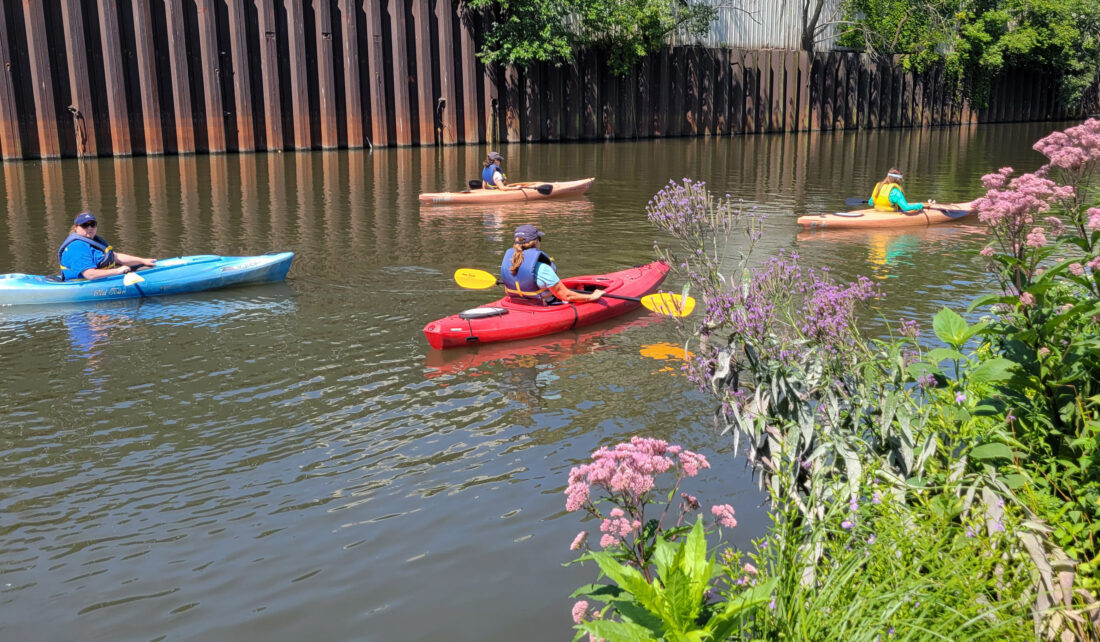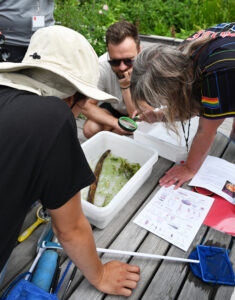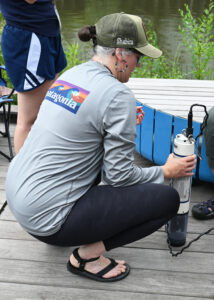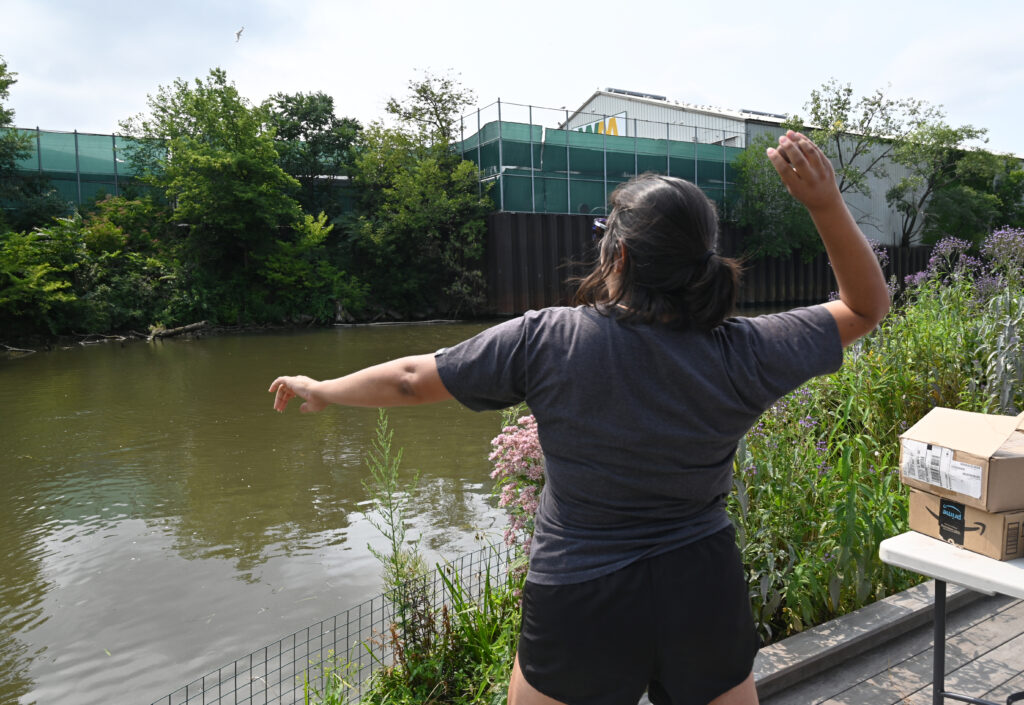
Educators from Illinois and Indiana gathered this summer along the Chicago River’s Wild Mile for an immersive two-day workshop designed to bring water quality education to life. Hosted by Illinois-Indiana Sea Grant (IISG) and Urban Rivers, the training on July 24 and 25 offered 5−12 grade teachers a unique opportunity to explore the river and its floating gardens, while also equipping them with hands-on tools to integrate these experiences into their classroom.

Educators examined Wild Mile macroinvertebrates, learning how to lead students to explore organisms in local waters.
The educators learned practical skills in water quality monitoring as well as about the ecological importance of the Chicago River. The workshop was capped off with an opportunity to kayak along the river and learn about the Wild Mile’s innovative design.
“The Chicago River has been an underused resource so it was inspiring to see so many educational organizations represented at this event. It’s a testament to the growing value of the river,” said Sage Rossman, community outreach and programs manager at Urban Rivers. “Education has been central to Urban Rivers’ work and it’s a huge step for us to be able to share our tools with a larger community of leaders.”

Workshop participants were introduced to water monitoring equipment and they tested the Wild Mile waters for a range of parameters.
Teachers were trained to use an all-in-one data collection device − this training provides them access to borrow the equipment through the Limno Loan program so they can bring these experiences directly to their classrooms. The program also offered a pathway for educators to engage their students through hands-on field trips to the Wild Mile.
“One important goal of our workshops is to grow a community of Great Lakes literate educators who can share hands-on learning opportunities with their students,” said Janice Milanovich, an IISG educator. “For all involved, we hope to foster a connection with the Great Lakes and associated freshwater resources like the Chicago River.”

Using clay and native seeds, the educators created seed balls, which they tossed into the river to promote plant growth.
Illinois-Indiana Sea Grant is one of 34 Sea Grant programs supported by the National Oceanic and Atmospheric Administration in coastal and Great Lakes states that encourage the wise stewardship of our marine resources through research, education, outreach and technology transfer. In partnership with the University of Illinois Extension, and Purdue University Forestry and Natural Resources, Illinois-Indiana Sea Grant brings science together with communities for solutions that work.

